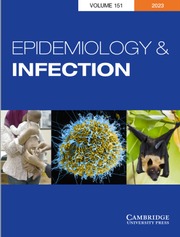Article contents
An Analysis of the Influence of Irradiation by means of a Mercury Vapour Lamp upon the Health and Fertility of a Breeding Stock of Guinea-pigs and upon the Health of their Offspring during the First Six Weeks of Life
Published online by Cambridge University Press: 15 May 2009
Extract
The maintenance of a constant supply of healthy guinea-pigs is an important part of the work of laboratories which are engaged in the production of diphtheria and tetanus antitoxin. The subacute infective processes to which malnutrition predisposes enhance the effect of the test dose of toxin, with the result that irregular deaths among the animals under test render difficult the titration of the antitoxin. For this reason it is desirable that breeding stocks should be kept in suitable animal houses under the best hygienic conditions possible. This policy has been followed in the Serum Department of the Institute for many years; there have been comparatively few introductions of stock from outside sources, and within recent years special attention has been devoted to diet.
- Type
- Research Article
- Information
- Copyright
- Copyright © Cambridge University Press 1930
References
REFERENCES
- 1
- Cited by


